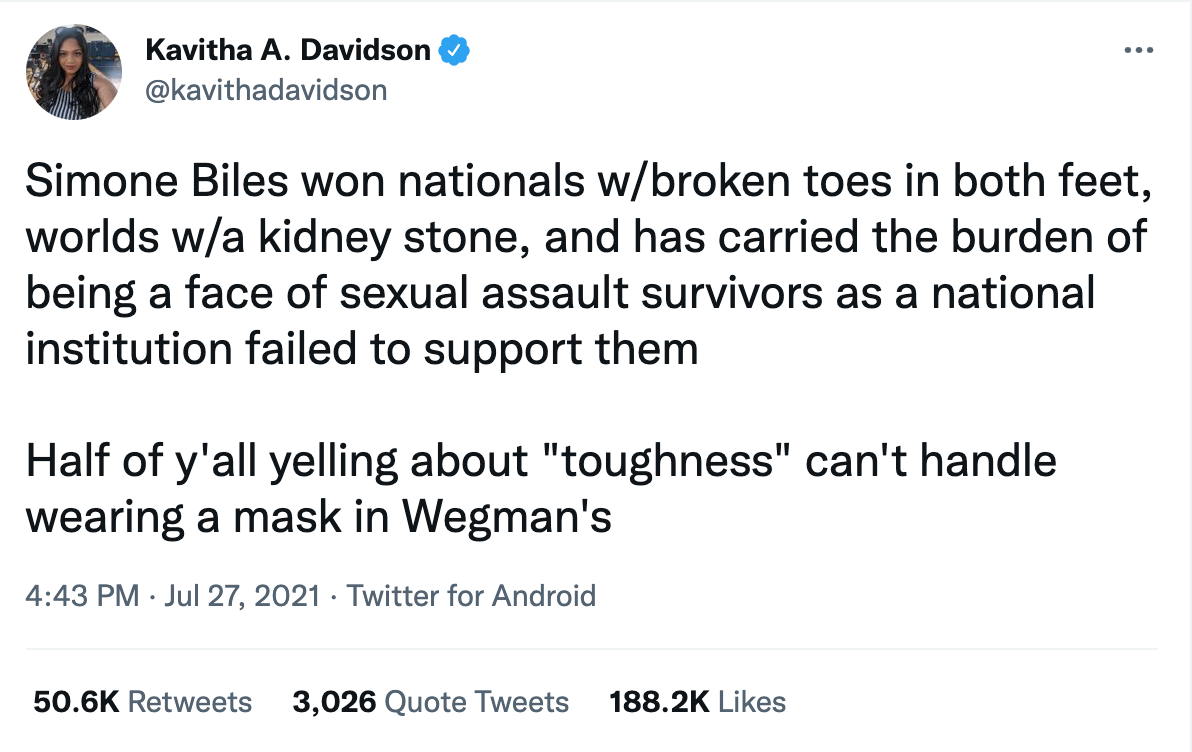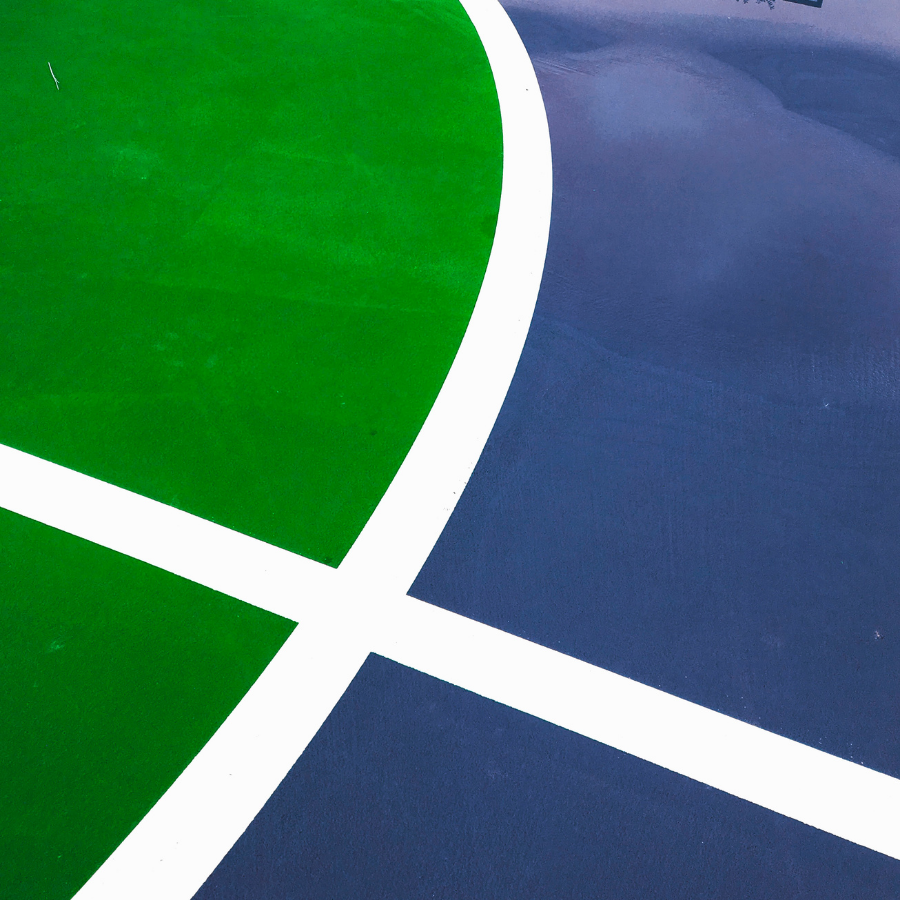According to mentalhealth.gov, “Mental health includes our emotional, psychological, and social well-being. It also helps determine how we handle stress, relate to others, and make choices.” Mental health is mentioned in society as it relates to other arenas of life like work, family, parenting, etc. but the conversation of mental health and sports is, in my opinion, just beginning in its earnest. Mental health shows the stress and hope from discovering you are as powerful as the focus you give to be a productive member of society.
During the Summer Olympics, when Simone Biles said that she was withdrawing for a gymnastics floor final, the furor of tablet taunters expressed their craven emotions online, a space that was a raging musk of vitriol. One moment Biles is lauded as the GOAT. The next, she is harassed and degraded. On an aside, GOAT conversations need to be left on the farm. Her power is a reflection of dichotomous responses. Many commended Biles and encouraged others to understand their needs, even as they do not have the space to do so. Biles took a preventative step. This is my favorite tweet that sums up all of the opinions:

In the documentary, LFG (you can watch the trailer on YouTube), streaming on HBO Max, the US Women’s National Soccer Team is fighting for equal pay. The action is preposterous, seeing that they are a winning team, a financial powerhouse, and beloved by generations. One of the players, Jessica McDonald, spoke about packing boxes at Amazon to supplement her meager income as a soccer player. She said, “childcare is more than my paychecks.” She gives the audience a look into her private life as a mother. She shows the sacrifices of pursuing a dream, including leaving her child to practice with the national team. McDonald is raising her child by example on achieving their goals.
Naomi Osaka earlier this year announced that she was not doing press during the French Open. You would have thought all the dough for croissants had expired. I, for one, absolutely loved that Osaka stood up to the archaic press corps, many of them known for degrading and repetitive questions in the neverending quest for a story. The coverage around her announcement had predictably unnerving headlines and attested to Osaka’s announcement. Eventually, the commentary was so much, that Osaka withdrew from the French Open entirely. Her documentary, Naomi Osaka, streaming on Netflix, gives a glimpse of her life in the spotlight, which can be draining, lonely, and uncomfortable. Osaka understands her presence as an athlete and is owning her place to uplift others by her actions. It should not be controversial for her to speak her truth.
In an interview with Carmelo Anthony, beginning at the 40:59 mark, Dwyane Wade spoke about his mental health and personal battles. Kevin Love, Power Forward for the Cleveland Cavaliers, has been a vocal proponent for mental health. Wade spoke briefly on an incident during a game he played in 2018 with Love when they were teammates. Love was vilified for a moment that later was recognized as deeper than basketball. A couple of months later, Love wrote about his experience with mental health for the Players’ Tribune. Wade owned the space in the interview to express the hope to speak with Love to acknowledge and apologize for what he did not know then.
As more globally renowned athletes use their power to course the conversation of mental health, I commend them for speaking about the commitment to their livelihood. It does not escape me that I speak of predominantly Black athletes, who are dealing with a plethora of societal issues that exacerbate their mental health. The brain is a vital organ, win or lose. There is no gold medal or finish line to be the first in how you value yourself. There is no dollar sign or amount of access that cocoons you from needing support. Remember that athletes are human. I encourage you to express empathy, to wait before you respond, and to recognize your needs even if you have never dribbled a ball.



Pingback: What A Happy Family Author Interview with Saumya Dave - Feminist Book Club